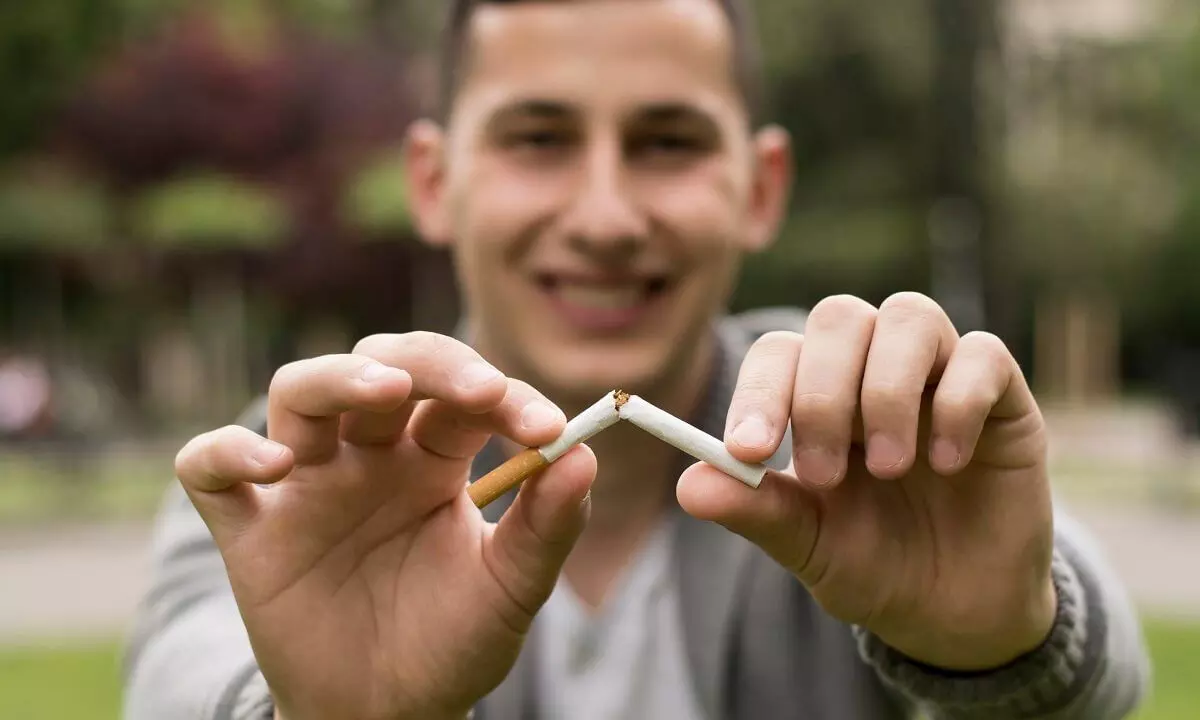Adolescent smoking leads to accelerated dependency

Adolescent smoking leads to accelerated dependency
Smoking amongst adolescence is an issue challenging our society as the most vulnerable demographic is keen on tobacco consumption.
Smoking amongst adolescence is an issue challenging our society as the most vulnerable demographic is keen on tobacco consumption. What starts off as a trial run at a party or with friends soon spirals into a full-fledged addiction. About 90 per cent of adult smokers started the habit as adolescents and did not plan to get addicted. What makes teenage smoking dangerous is the fact that most adolescents are addicted to smoking physically and psychologically. Adolescent onset tobacco use leads to 'accelerated dependency' within a short period from first exposure.
According to multiple researches, an estimate of 5 per cent to 25 per cent of Indian adolescents use tobacco or have used it in the past. Even though smokeless tobacco is used less commonly, high rates of its use have been reported in India among adolescents aged 13 to 15 years.
Nicotine exposure can have lasting effects on brain development in adolescents. Young smokers are more vulnerable to mental illnesses when compared to their non-smoking counterparts. One comes across panic attacks, manic depressive disorder, anxiety disorder, chronic stress and sleep deprivation and some teens even show deep signs of claustrophobia and agoraphobia.
One of the most common reasons cited by tobacco users is the belief that smoking reduces stress and tension. This is true because there is an ease in stress level when nicotine enters the body. However, this feeling is very short-lived and it leads to tobacco dependency. Also Covid sequelae were seen to be worse in smokers.
Teen smoking also poses a great deal of physiological challenges like breathlessness, lack of stamina, reduced lung growth and early cardiovascular damages, diabetes, oral issues and cancer.
Various factors contribute to adolescent smoking. Parental smoking, family background, personality disorder issues, siblings who smoke, peer pressure, academics, low self-esteem, risk behaviours, lifestyle, stress, self-esteem, escape mechanism, misguided beliefs, performance enhancement are some of the common reasons to address amongst today's teens.
Be a good example
Most often teens who smoke are influenced by parents. They emulate their elders. As parents, it's imperative to set a good example and be upright role models. Do not smoke in front of your teens. If need be, quit smoking yourself. If quitting is difficult then explain to your teen how unhappy you are with your smoking, how difficult it is to quit and that you'll keep trying until you stop smoking for good.
Understand the psyche
Adolescents usually smoke due to peer pressure or make a statement. It's their way of proclaiming their independence. Also they smoke to fit into a certain group.
Have a conversation with your teen on how cigarette manufacturers create a cool myth around smoking through advertisements.
No is the mantra
Teach your kid to say no. Tell them not to succumb to peer pressure. Give your teen the tools he or she needs to refuse cigarettes. Rehearse how to handle tough social situations. It might be as simple as saying, "No thanks. I don't smoke."
Smoking costs
Not only does smoking cause physiological and psychological issues, smoking also is heavy on the pocket. Talk to your teen and explain to him how the money wasted on smoking could be utilised on something worthwhile.
Consider the future
Usually teenagers live in the present. They believe in instant gratification. Talk to them about the long-term effects of smoking. Use loved ones, friends, neighbours or celebrities who've had tobacco-related illnesses as real-life examples of the harm tobacco use can cause.
Associate yourself with anti-smoking campaigns
Be part of anti-smoking campaigns by Participating in local and school-sponsored smoking prevention campaigns. Support efforts to make public places smoke-free and increase taxes on tobacco products. Apart from these there are various helplines and apps which aid in teenage deaddiction.
(The author is a Consultant - Psychiatry, ASTER RV Hospital)














